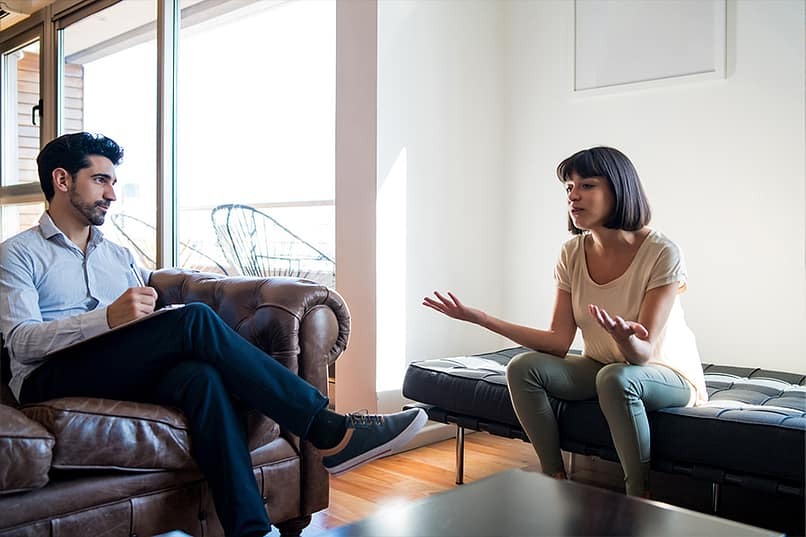According to the National Institute of Health, seasonal affective disorder (SAD), also called seasonal depression, is a form of depression triggered during specific seasons. Depression may also cause you or a loved one to self-medicate with drugs or alcohol. Some individuals reach out to a depression treatment program in Portland, Oregon, or a program closer to home for help. Early intervention and mental health treatment can prevent your condition from escalating to substance use and disrupting your life.
What are the Signs and Symptoms of Seasonal Depression?
SAD symptoms typically begin in late fall to early winter because of reduced sunlight and more time spent indoors. Symptoms may be mild to severe and may appear in the summer. Common winter-onset symptoms include:
- Headaches
- Feeling sad, guilty, or hopeless
- Loss of interest in social activities or things you used to enjoy
- Fatigue, low energy, irritability, or anxiety
- Changes in sleep patterns or insomnia
- Carb cravings and weight gain
- Suicidal thoughts or actions
SAD symptoms typically improve in spring and summer. If you have SAD, you may feel better when the weather is sunny and you spend more time outdoors. Seasonal depression may also occur in the spring or summer, but this is less common.
Summer SAD symptoms include anxiety, trouble sleeping, agitation, restlessness, irritability, loss of appetite, and weight loss.
How Seasonal Depression Affects You
About four to six percent of the American population struggles with SAD, and it can severely affect their ability to function. Women are also more likely to develop the condition. Age, family history of depression, and living far away from the equator are other risk factors. Regardless of how it happens, life can become problematic in the following ways:
- Reduced work or school performance
- Trouble maintaining positive relationships with others
- Low interest in personal hygiene, proper nutrition, or physical health
- Neglecting household responsibilities or caring for kids
- Alcohol or drug abuse or prescription misuse
Sometimes the symptoms get better as the season changes. In other cases, they get worse and can disrupt daily functioning. You may try to treat depression on your own with self-care, but it may not be effective enough, particularly in cases of moderate to severe seasonal depression.
What Happens When Seasonal Depression Triggers Substance Use?
Depression can trigger substance use and lead to addiction. The National Institute of Mental Health (NIMH) states that alcohol and drug addiction is a common problem among patients diagnosed with depressive disorders such as SAD.
For some individuals, stimulants may be an attractive option to boost energy. Others may turn to alcohol, opioids, or prescription medicines to numb emotional pain associated with depression or anxiety. Developing a dependence on addictive substances can make it more difficult to overcome SAD on your own while battling a substance use disorder (SUD).
Crestview Recovery Mental Health Treatment for Depression
 You can consider entering our depression treatment program in Oregon if your life has become unmanageable. Our treatment specialists will carry out an extensive dual diagnosis evaluation to determine if you will also need substance use treatment. Program options include:
You can consider entering our depression treatment program in Oregon if your life has become unmanageable. Our treatment specialists will carry out an extensive dual diagnosis evaluation to determine if you will also need substance use treatment. Program options include:
- Partial hospitalization program (PHP): This is the most intensive level of care, and it requires that you reside at our facility during the day while receiving treatment. You will return home in the evening and on weekends.
- Residential and inpatient treatment program:
- Outpatient rehab center: Outpatient allows you to live at home and only come in for treatment a few times each week.
- Intensive outpatient program (IOP): IOP is a step down from PHP and allows you to live at home while coming to our facility for treatment several times each week.
- 90-day drug addiction treatment program: Our long-term addiction treatment program is designed to help you achieve sustainable sobriety.
What to Know About Dual Diagnosis Treatment
If you need dual diagnosis treatment, you can undergo intensive treatment for drugs or alcohol abuse and seasonal affective depression at the same time. Your personalized mental health treatment plan may include stress management, cognitive-behavioral therapy, medication therapy, family therapy, and other therapeutic services.
Individual or group behavioral therapy aims to help you manage symptoms by changing perceptions and lifestyle habits that contribute to depression. Light therapy has proven to be effective for clients living in regions experiencing longer winters and reduced sunlight.
Find Out How to Enroll in Our Depression Treatment Center in Portland
Depression is a serious mental illness. Therefore, you should take it very seriously. If you or someone you know is struggling with depression, please don’t hesitate to reach out to us. We can help you get your life back on track.
Crestview Recovery is a Joint Commission Accredited addiction treatment center in Portland, Oregon. We extend our services to residents within the state and men and women from Idaho, Washington, and Montana. Our trained and certified staff is committed to providing you or your loved one with high-quality care in a safe and compassionate environment. Please feel free to call 866.262.0531 to find out more.
































